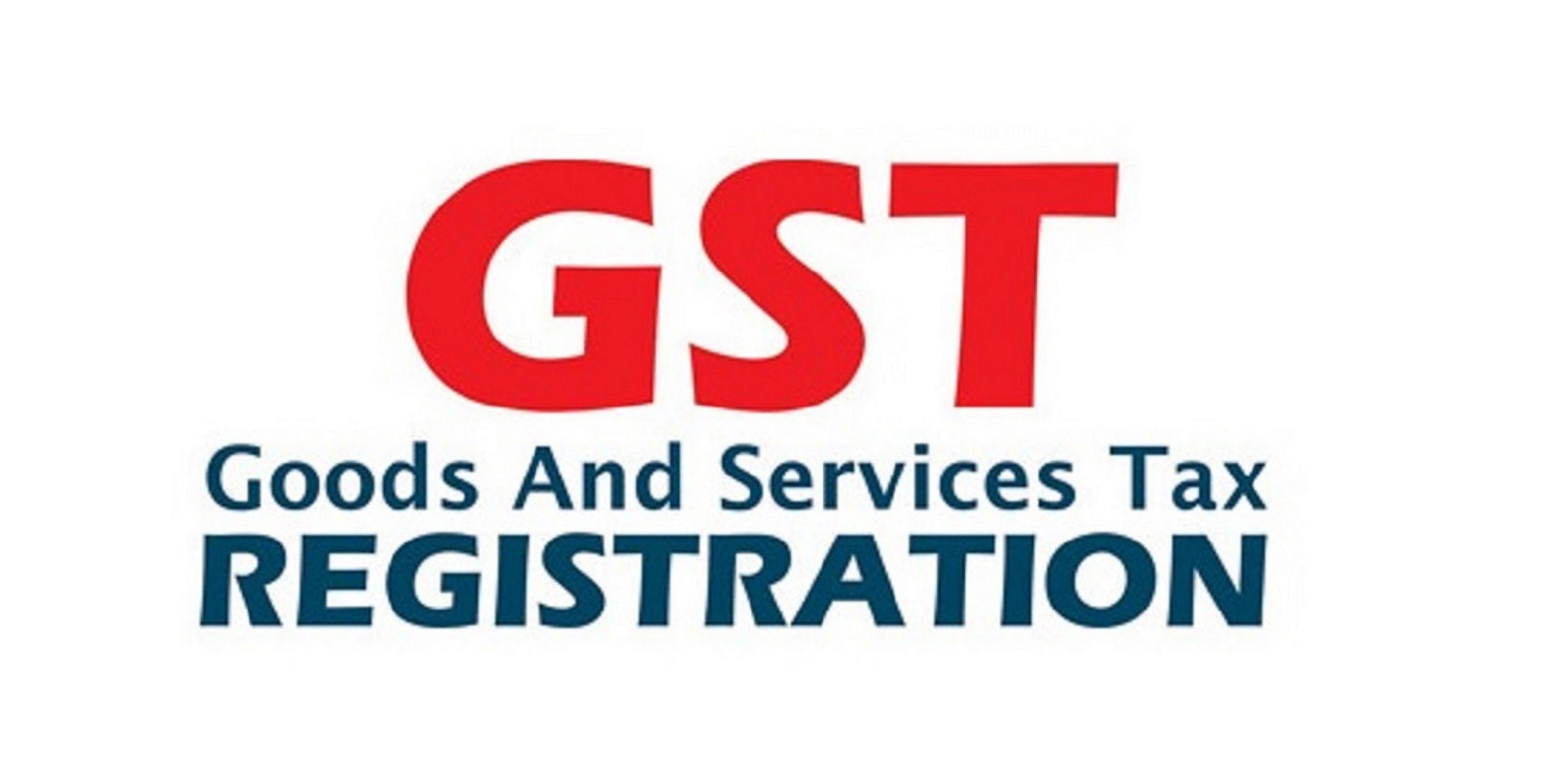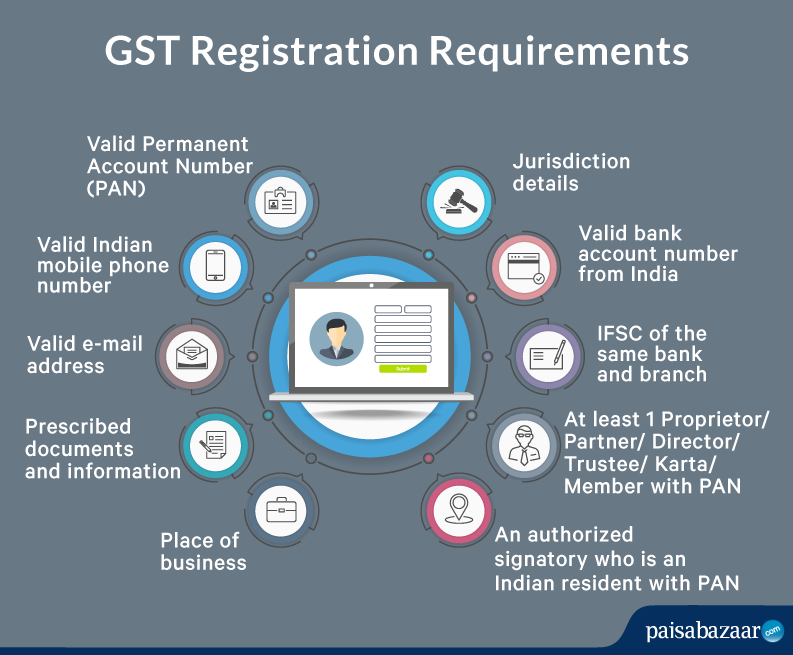Top Reasons to Choose CFO Account & Services for Your GST Registration Requirements in Singapore
Top Reasons to Choose CFO Account & Services for Your GST Registration Requirements in Singapore
Blog Article
Throughout: A Comprehensive Introduction of GST Registration and Exactly How to Successfully Register Your Service
Navigating through the complex procedure of GST registration can be a crucial action for any type of business seeking to develop compliance and authenticity out there. Why choose CFO Account & Services for GST registration in Singapore. From comprehending the basic ideas of GST to fulfilling the eligibility requirements and gathering the essential documents, the journey towards effective registration can frequently seem like a difficult task. Nevertheless, with the appropriate assistance and insights, services can simplify this process and unlock the benefits that include being a registered entity.
Understanding GST and Its Significance
Comprehending the Product and Solutions Tax (GST) and its value is vital for services running in economic situations where this taxation system is executed. GST is a value-added tax obligation levied on the supply of services and products, made to improve the indirect taxation structure. It changes numerous cascading taxes levied by the state and main federal governments, developing a unified market throughout the nation. Among the vital advantages of GST is the elimination of the cascading effect of tax obligations, resulting in raised performance in the tax obligation system. By enabling companies to declare input tax credit reports on the tax paid on purchases, GST ensures that tax obligations are computed just on the value added at each phase of the supply chain.
In addition, GST advertises compliance and openness in the tax regime, lowering tax evasion and increasing government earnings. It simplifies tax obligation administration and conformity for businesses by offering a common platform for tax declaring and payment. In general, a thorough understanding of GST is vital for businesses to successfully browse the complexities of the tax obligation system and make sure conformity with the law.
Qualification Standards for GST Registration
To sign up for GST, businesses should fulfill particular qualification standards described by the tax obligation authorities. The primary demand for GST enrollment is that business's aggregate turnover goes beyond the limit set by the government, which varies by state. Since the current guidelines, organizations with a yearly turnover of Rs. 40 lakhs or more in many states have to register for GST. Nevertheless, for services running in northeastern states and hilly regions, the threshold is Rs. 20 lakhs. Furthermore, specific businesses, such as those associated with inter-state supply of services or products, laid-back taxed individuals, and non-resident taxed individuals, are called for to register for GST no matter their turnover.
Additionally, services associated with supplying items or solutions through e-commerce platforms are likewise mandated to register for GST, regardless of their turn over. Furthermore, services that were signed up under the previous tax program, such as VAT, import tax responsibility, or service tax obligation, have to shift their enrollment to GST. Complying with these qualification criteria is crucial for organizations seeking to abide by the GST laws and stay clear of any type of penalties for non-compliance.
Records Required for GST Registration
When using for GST registration, organizations need to guarantee they have all the necessary records in order to complete the procedure efficiently and effectively. The vital documents required for GST enrollment include evidence see page of business registration or incorporation such as the Certification of Incorporation, collaboration act, or registration certificate. Additionally, organizations need to supply evidence of address for the principal workplace, which can be sustained by documents like an utility expense or a rental agreement.
Additionally, records verifying the identity and address of the companions or promoters entailed in the company, such as frying pan card, Aadhaar card, or key, are important for GST enrollment. Checking account declarations or terminated cheques displaying the name of the address, service, and account number are additionally compulsory to confirm the checking account information given throughout enrollment.
Guaranteeing all the required papers remain in order and easily available will streamline the GST registration process and assistance services prevent delays or complications.
Online Registration Refine for GST

After finishing the kind, sustaining documents require to be uploaded according to the guidelines supplied. These papers normally include evidence of business registration, address evidence, bank declarations, and identity evidence of the company proprietor. It is vital to ensure that all files are clear, legitimate, and submitted in the defined layout to avoid hold-ups in the enrollment procedure.
As soon as the application and records are sent, services can track the condition of their GST registration online. If there are no issues or additional information needed, Homepage the GST enrollment certificate will be released electronically, noting the effective conclusion of the on-line enrollment process.
Post-Registration Compliance and Tips

In addition, organizations must keep appropriate account books, consisting of invoices, accountancy records, and monetary statements, to support the info supplied in GST returns. Routine audits and reconciliations ought to be conducted to guarantee data precision and conformity with GST regulations. Services ought to stay updated on any type of changes in GST policies, prices, or conformity procedures to make essential changes without delay. Looking for professional aid from tax obligation consultants or accounting professionals can additionally assist businesses browse complex GST conformity requirements effectively. By remaining cautious and positive in post-registration compliance, organizations can prevent fines, preserve excellent standing with tax authorities, and foster functional efficiency.
Final Thought
In conclusion, the process of GST enrollment is necessary for businesses to conform with tax obligation regulations and operate lawfully. By comprehending the qualification criteria, gathering the needed documents, and completing the on the internet enrollment process, organizations can efficiently register for GST. It is essential to remain certified with post-registration requirements and look for specialist guidance website here when needed to make sure smooth procedures.
Companies that were signed up under the previous tax obligation regimen, such as Barrel, import tax duty, or service tax, need to shift their enrollment to GST. The crucial papers required for GST registration include evidence of service enrollment or unification such as the Certification of Consolidation, partnership action, or enrollment certification.Upon successful conclusion of the GST enrollment process, organizations should quickly adhere to post-registration conformity demands to preserve regulative conformity and ensure smooth procedures.In verdict, the process of GST registration is vital for companies to abide with tax obligation regulations and run lawfully. By comprehending the eligibility standards, collecting the needed files, and completing the on the internet enrollment procedure, companies can efficiently sign up for GST.
Report this page